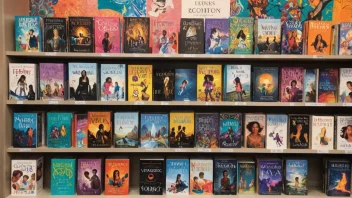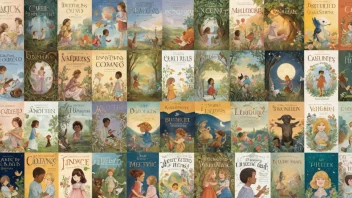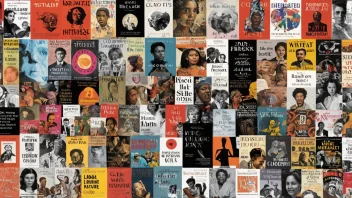Science fiction has captivated readers for generations, transporting them to futuristic worlds and exploring complex themes. For newcomers to the genre, diving into the vast universe of science fiction can seem overwhelming. However, starting your journey doesn’t have to be daunting. Here are some essential tips to help you navigate the intriguing realms of science fiction.
First, understand the variety within the genre. Science fiction ranges from hard science fiction, which emphasizes scientific accuracy, to soft science fiction that focuses more on character development and social commentary. Knowing your preferences can help tailor your reading list. For instance, if you enjoy technical details, authors like Isaac Asimov or Arthur C. Clarke might appeal to you. Conversely, if you prefer character-driven narratives, consider works by Ursula K. Le Guin or Octavia Butler.
Next, explore notable entry points into the genre. Classic novels like 'Dune' by Frank Herbert or 'Fahrenheit 451' by Ray Bradbury are often recommended for their rich storytelling and profound themes. These novels not only provide an engaging reading experience but also introduce you to the foundational concepts of science fiction. Short stories can also be an excellent way to ease into the genre, providing concise narratives that showcase the imagination and creativity of science fiction writers. Collections like 'The Martian Chronicles' by Ray Bradbury or 'Stories of Your Life and Others' by Ted Chiang can be particularly inviting.
A great way to enhance your understanding of science fiction is to join a community of readers. Online forums, book clubs, and social media groups dedicated to science fiction can provide recommendations, facilitate discussions, and allow you to share your thoughts. Engaging with fellow enthusiasts can also introduce you to lesser-known gems and encourage you to explore sub-genres you may not have considered.
Don’t hesitate to take the plunge into related genres such as fantasy, speculative fiction, or dystopian literature. These genres often overlap with science fiction and can provide a broader context for understanding the themes and ideas prevalent in the genre. Books like 'The Handmaid’s Tale' by Margaret Atwood or 'The Left Hand of Darkness' by Ursula K. Le Guin can bridge the gap between various literary styles, making the transition smoother.
Lastly, remember that reading science fiction is a personal journey. Don’t feel pressured to finish every book you start; find what resonates with you. Whether it's the themes of technology, society, or humanity, each reader will have their own unique experience. Keep an open mind, and allow yourself to be surprised by the possibilities that science fiction presents.
In conclusion, starting your science fiction journey is an exciting adventure filled with endless possibilities. By understanding the sub-genres, exploring classic works, engaging with communities, and allowing for personal preferences, you can cultivate a deeper appreciation for this captivating genre. Embrace the journey, and let your imagination soar.
Embarking on Your Sci-Fi Journey
Discover essential tips for navigating the intriguing realms of science fiction, whether you're a newcomer or looking to deepen your understanding of the genre.






